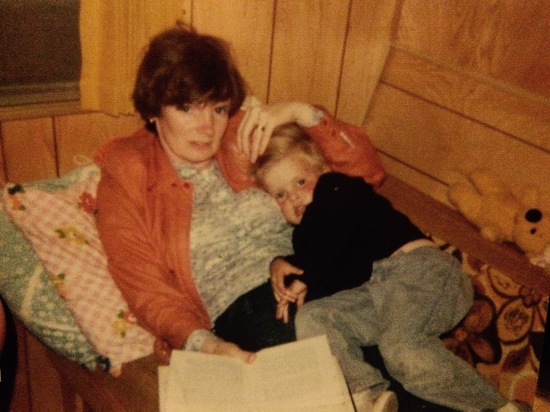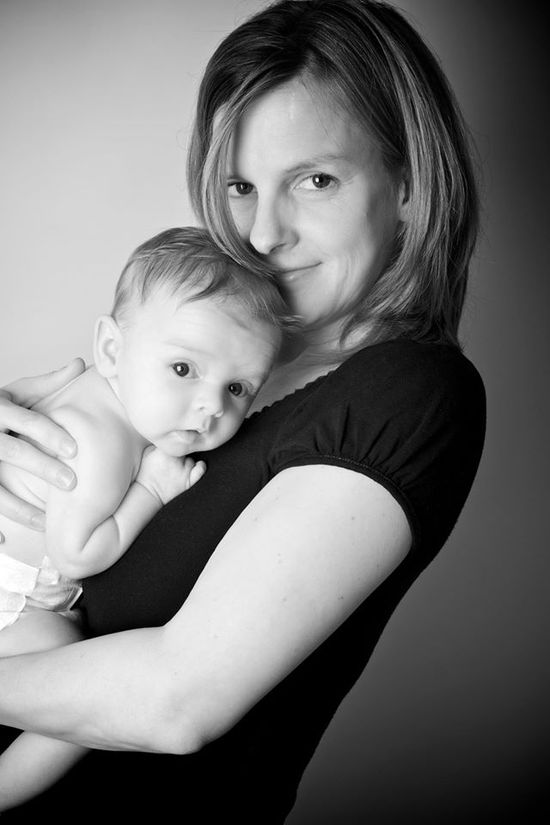In the days after my first child was born, I was lost in him. I spent so many hours staring at his little features that when my husband returned from work each day, it seemed almost freakish how big his face was.
What I most remember feeling for my newborn was a sense of being wholly committed to caring for him. It was more than just feeling responsible -- protecting him was engrained, instinctual. I wanted him to know that I was his and he could rely on me always.
And then it struck me that one day, I would die. More than that, perhaps because my husband and I were relatively older when our son was born, I became convinced that it would happen sooner rather than later.
One afternoon, I was particularly saddened that I would not be there for my son at his own death. I imagined him as an aged man, life well spent, surrounded by people who loved him, many of whom I may never have met -- and thought that even then, he would want his mother.
It was a little nuts, I grant you.
Motherhood is a complex relationship, and one that begins with the baby utterly dependent on you, but constantly in the process of learning to function independently -- from breathing on their own to eating solids to becoming adults and possibly parents themselves.
A mother, on the other hand, is in the constant process of accepting this evolution and letting go. But the instinct to protect stays strong -- from danger, from disappointment, from hurt, from worry.
When I was 5 and cast as the cow in our church's nativity play instead of the coveted role of Mary, my mother convinced me the cow was the most important, because it breathed on baby Jesus and kept him warm.
Mom's soothe, and continue to -- even when they can no longer fool you.
When I was 18 and living in the south of the Netherlands with my family, I woke one night to our house shaking. We were about 50 km from the epicenter of a 5.3 earthquake, and my mom just said, "Go back to bed, love -- it's only the wind."
She died of cancer a year later. I was a freshman in college and thought at the time that I was lucky that at least she had been around to see me grow into adulthood.
As though being an adult is a finite line you cross and my mother, having delivered me to that line, was no longer as necessary to me as when I was a younger child.
I'm at an age now where it's not that unusual for my friends to have lost at least one parent. But for a long time, I was a bit of an anomaly, and found myself reassuring sympathetic friends that it was OK, that I was used to it. It felt embarrassing and self-indulgent to do otherwise.
Then, once when I was in my early-30s, I sat up until 4 a.m. drinking gin and tonics with a friend. I mentioned to him that my mom was dead. It was a necessary detail rather than the focus of what I was telling him, but he zoned in on it.
"It was more than a decade ago," I said. "It's fine."
"It's not fine," he said. "It sucks. That sucks."
And actually, he was right. I navigated my 20s and 30s without a mom. I've gone through many episodes in my life since she died. I graduated from university, started a career, lived in several states and countries, went to graduate school, got married and divorced and married again, went to graduate school again, had three children.
And she doesn't know any of this.
There's a joy that is missing from every positive experience when you don't have a mom. And there's a loneliness that intensifies the less certain times of failure or sadness.
My mother cared for and concerned herself with me in a way no other person can. It's a unique relationship, mother and child, and one that can't be compensated -- no matter how many other people love you.
And it's a remarkable thing to become a mother and realize that you are now that person to your child. It's a profound promise and one you want to fulfill.
Before having kids, I wasn't really afraid of much. Now I feel more vulnerable, because I have so much more to lose. I worry about something happening to them, but I also worry about something happening to me.
After focusing for years on my own loss, now that I'm a parent, I think about having to leave my kids -- my mother died when she was only six years older than I am now -- and I grieve more for everything she missed out on than I do for what I don't have.
Losing a parent is difficult, but recognizing my loss and also my mother's helps me remember how my children view me, what they expect from me. And it reminds me to appreciate the years that I can be with my children, watching them grow into themselves and make sense of the world.
It helps me appreciate living, and the often exhausting but equally amazing honor it is to be their mom.

